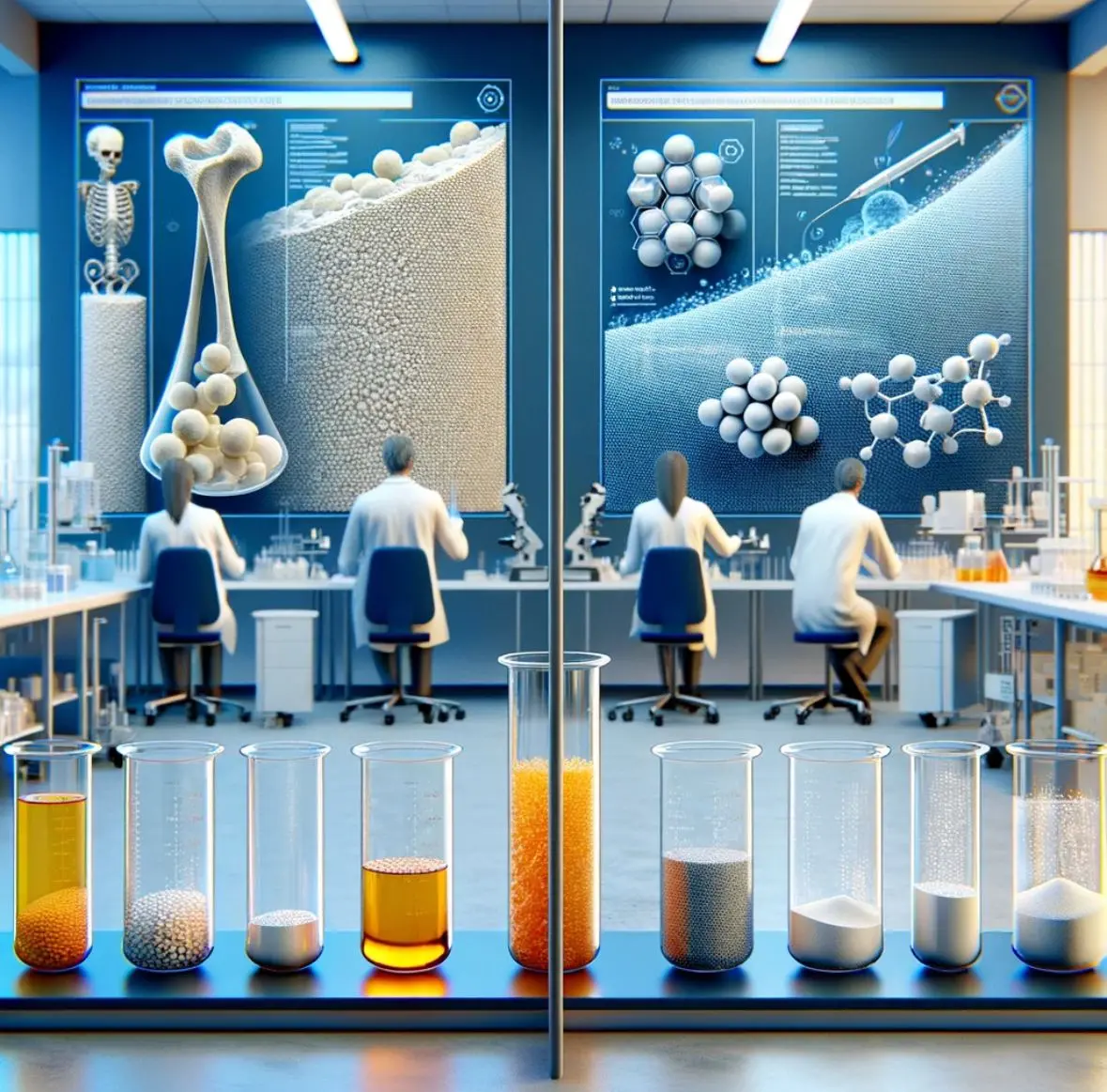Introduction
Hydroxyapatite microspheres (HA) hold a significant position in biomedical fields, especially in bone repair and tissue engineering.
This article explores two potential partners for HA: Carboxymethyl Cellulose (CMC) and Hydroxyapatite (HA) itself.
Carboxymethyl Cellulose (CMC)
CMC is popular for its excellent adhesive and stabilizing properties. In the food processing and pharmaceutical industries, CMC effectively
enhances the thickness and stability of products. When combined with HA, CMC can provide additional viscosity, aiding in the precise
placement and stabilization of HA microspheres.
Hydroxyapatite (HA)
HA is valued in the medical field for its excellent biocompatibility and osteoconductivity. In orthopedic implants and dental restorations,
HA facilitates the integration of natural bone with artificial materials. Combining HA microspheres with more HA material can enhance
the overall structure's bioactivity and promote bone growth.
Choosing the Application Scenario
The choice between CMC or HA as a partner for hydroxyapatite microspheres depends on the final product's application field. CMC is
ideal for formulations requiring thickness and stability in food or pharmaceutical products, while HA is more suitable for medical
applications seeking high biocompatibility and bone integration.
